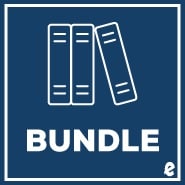ALERT: Before you purchase, check with your instructor or review your course syllabus to ensure that you select the correct ISBN. Several versions of Pearson's MyLab & Mastering products exist for each title, including customized versions for individual schools, and registrations are not transferable. In addition, you may need a CourseID, provided by your instructor, to register for and use Pearson's MyLab & Mastering products.
Packages
Access codes for Pearson's MyLab & Mastering products may not be included when purchasing or renting from companies other than Pearson; check with the seller before completing your purchase.
Used or rental books
If you rent or purchase a used book with an access code, the access code may have been redeemed previously and you may have to purchase a new access code.
Access codes
Access codes that are purchased from sellers other than Pearson carry a higher risk of being either the wrong ISBN or a previously redeemed code. Check with the seller prior to purchase.
0321993292 / 9780321993298 The Curious Researcher: A Guide to Writing Research Papers Plus NEW MyWritingLab with Pearson eText -- Access Card Package
Package consists of:
0205870147 / 9780205870141 MyWritingLab with Pearson eText -- Valuepack Access Card
0321992962 / 9780321992963 The Curious Researcher: A Guide to Writing Research Papers
--









